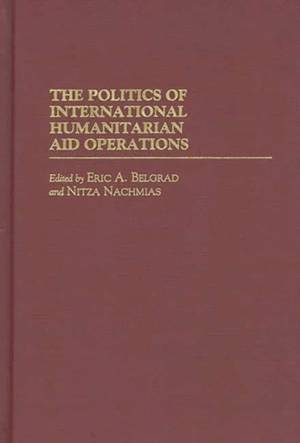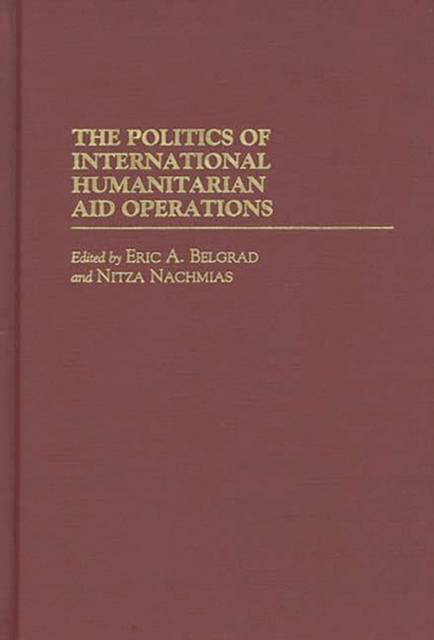
Je cadeautjes zeker op tijd in huis hebben voor de feestdagen? Kom langs in onze winkels en vind het perfecte geschenk!
- Afhalen na 1 uur in een winkel met voorraad
- Gratis thuislevering in België vanaf € 30
- Ruim aanbod met 7 miljoen producten
Je cadeautjes zeker op tijd in huis hebben voor de feestdagen? Kom langs in onze winkels en vind het perfecte geschenk!
- Afhalen na 1 uur in een winkel met voorraad
- Gratis thuislevering in België vanaf € 30
- Ruim aanbod met 7 miljoen producten
Zoeken
The Politics of International Humanitarian Aid Operations
Eric Belgrad, Nitza Nachmias
Hardcover | Engels
€ 161,45
+ 322 punten
Omschrijving
The theories and case studies examined in this volume constitute a thorough study of foreign intervention in civil conflicts for the purpose of rendering humanitarian aid. The classical paradigm of the ethics of intervention forbids the violation of territorial sovereignty. Public international law and the UN charter also mandate nonintervention within the territorial boundaries of a state. Nevertheless, in recent years, as a result of brutal civil conflicts and their violent and inhumane consequences--as in Rwanda, Bosnia, and Cambodia--international aid interventions have become an accepted practice. Still, international humanitarian aid involves unsettled, controversial issues--dilemmas concerning donors, recipients, and international organizations. These issues, as well as the concepts of sovereignty, human rights, coercive interventions, and peacekeeping, are critically evaluated in this volume, which will be of interest to scholars and policymakers in international relations, human rights, and military affairs.
Specificaties
Betrokkenen
- Auteur(s):
- Uitgeverij:
Inhoud
- Aantal bladzijden:
- 240
- Taal:
- Engels
Eigenschappen
- Productcode (EAN):
- 9780275952730
- Verschijningsdatum:
- 30/06/1997
- Uitvoering:
- Hardcover
- Formaat:
- Genaaid
- Afmetingen:
- 165 mm x 241 mm
- Gewicht:
- 603 g

Alleen bij Standaard Boekhandel
+ 322 punten op je klantenkaart van Standaard Boekhandel
Beoordelingen
We publiceren alleen reviews die voldoen aan de voorwaarden voor reviews. Bekijk onze voorwaarden voor reviews.









